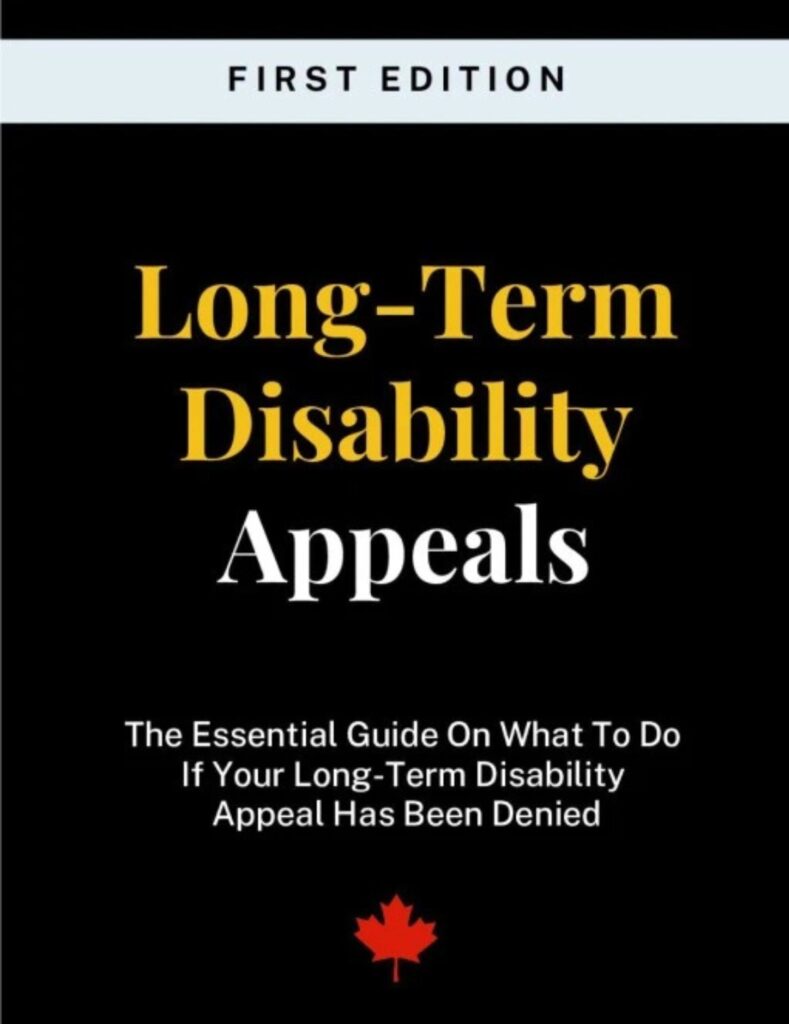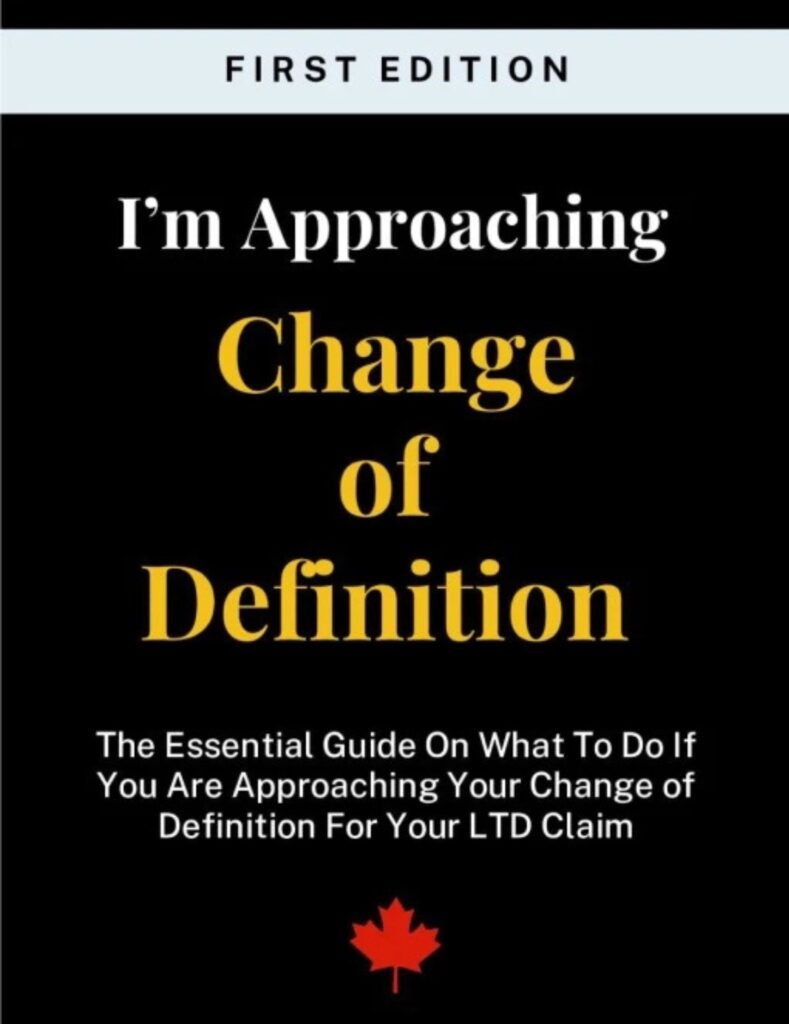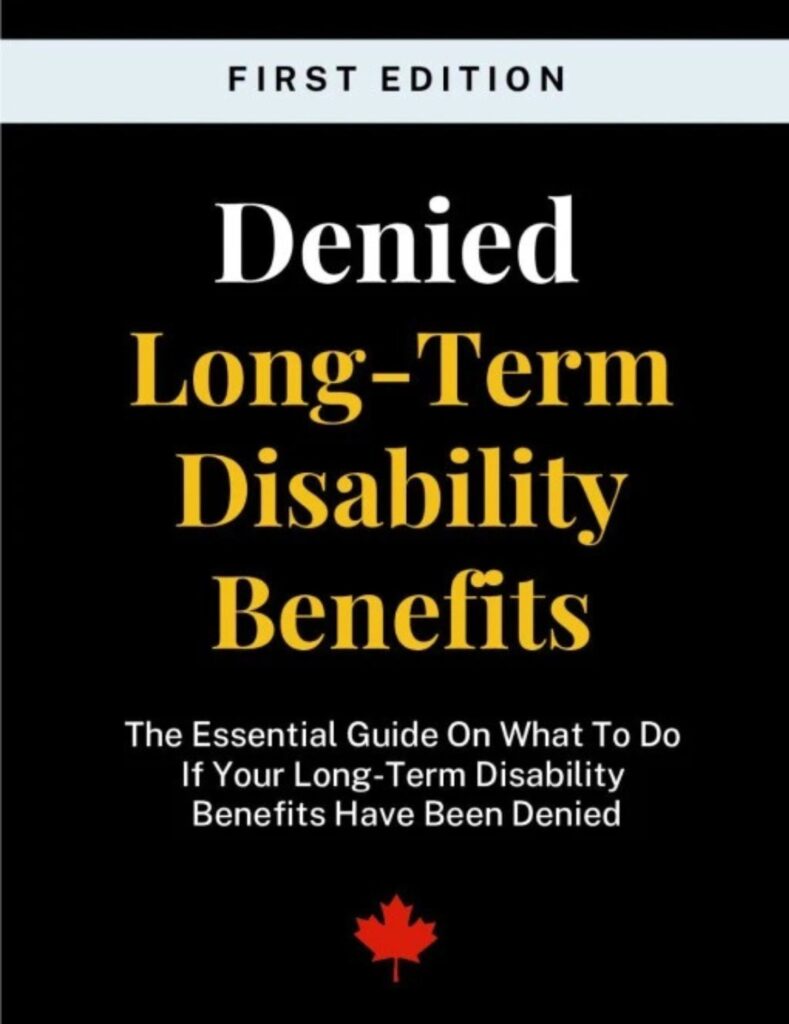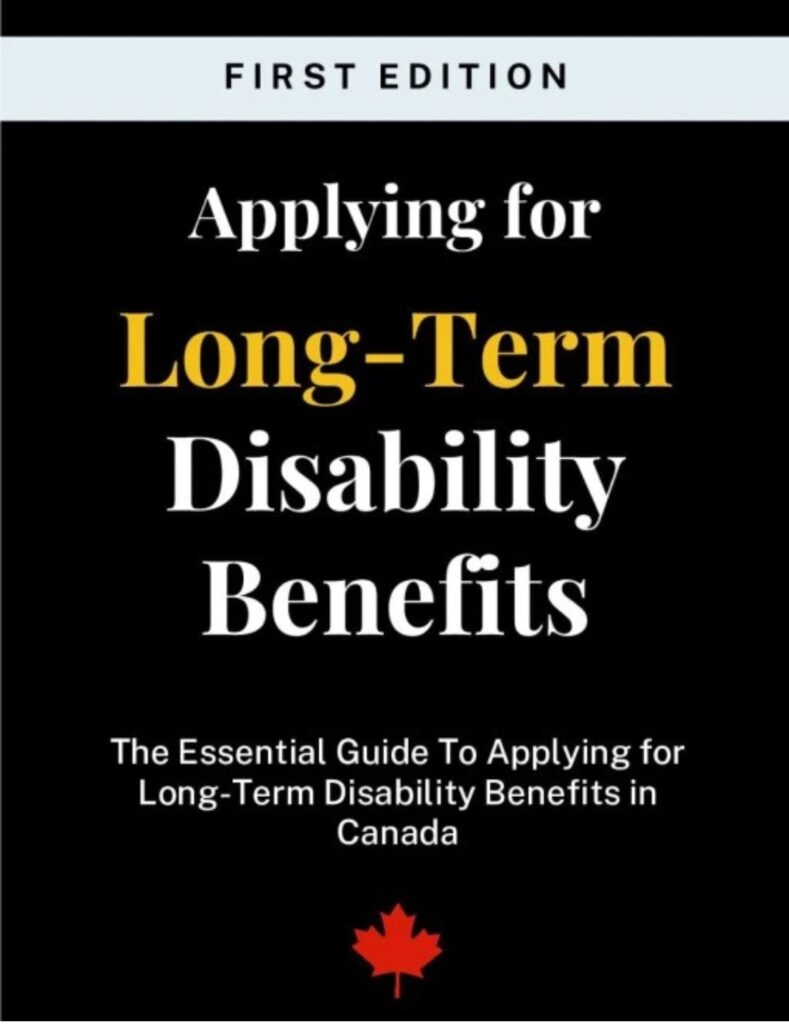Toronto Long Term Disability Lawyer
Find out if you have a case today.
Contact our Toronto long-term disability lawyers for a free consultation if you have legal questions regarding your long-term disability claim.
Table of Contents
When a person finds that they are unable to work due to an illness or injury, they may be eligible for Long-Term disability (LTD) benefits. Long-Term disability insurance provides individuals with disabling conditions essential benefits (namely, income replacement) to help them survive while they’re unable to work. The benefits you are eligible for and the length of time you can collect them will depend on your condition and your insurance policy.
When LTD claims are denied, navigating your rights and legal options can be overwhelming. Insurance providers deny benefits for many reasons, some of which may be challenging to respond to effectively. An experienced lawyer can help people whose benefits have been denied pursue the coverage they need, either through an appeal or a legal claim.
At Preszler Injury Lawyers, our Toronto Long-Term disability lawyers believe that injured individuals deserve financial and physical stability while they’re unable to work. If you’re having trouble with an LTD application or your benefits have been denied, we can help. To schedule a free initial consultation with our team today, contact us online or call our Toronto office at (888) 608-2111.
Long-Term Disability Claims In Ontario

Understanding Long-Term Disability Coverage In Toronto
Nobody anticipates sustaining a severe injury, developing a chronic illness, or being diagnosed with a mental health disorder. However, in Canada, 1 in 3 people on average will be disabled for 90 days or more before they reach age 65. When this happens, many people find themselves unable to continue engaging in routine activities, participating in social events, or completing the duties of their jobs.
Long-Term disability insurance typically provides income replacement when you’re unable to work due to illness or injury. These benefits usually begin after short-term disability benefits (STD) end, typically after 3-6 months of disability. Most LTD policies provide:
- Income replacement (usually 60-70% of your pre-disability income)
- Continuation of certain benefits (like health insurance)
- Potential rehabilitation services
Specific benefits provided to claimants vary significantly between policies. A Long-Term disability attorney Toronto residents trust will carefully review your policy to understand:
- The Definition of Disability: Some policies only require that you cannot perform your “own occupation,” while others require that you cannot perform “any occupation”
- Benefit Duration: How long benefits will continue (until age 65, for a set number of years, etc.)
- Exclusions: Conditions that aren’t covered (often pre-existing conditions)
- Limitations: Reduced benefit periods for certain conditions (often mental health conditions)
- Offset Provisions: How other income (like CPP disability benefits) affects your LTD payments
Long-Term disability benefits may be available through:
- Employer-sponsored group plans,
- Private insurance policies, or
- The federal government.
If you are covered by your employer or a private insurer, the eligibility requirements for LTD claims will be outlined in your policy. The terms of different LTD policies can vary greatly, so it’s important that you understand yours thoroughly when applying or appealing a denial.
If you are not covered privately or by your employer, you may be eligible for CPP Disability Benefits (CPPD) through the Canadian government. CPPD is designed to provide partial income replacement to individuals under the age of 65 who have contributed to the CPP for a certain amount of time and meet other specific requirements. Individuals over the age of 65 may be eligible for the Post-Retirement Disability Benefit, depending on their situation.
LET US PUT OUR EXPERTISE TO WORK FOR YOU
Tell Us What Happened
Since 1959, we’ve helped thousands of Canadians get the compensation they deserve with their long-term disability claims. One of Canada’s oldest personal injury law firms, personal injury law is exclusively what we do. Book a free consultation today with our top-rated personal injury lawyers.
Our team is available 24/7 to speak with you.

Common Conditions Covered By Long-Term Disability Plans
Although eligibility requirements for LTD benefits vary between policies, conditions that may entitle an insurance policyholder to receive benefits often include:
- Heart disease
- Back problems
- Chronic pain or complex regional pain syndrome (CRPS)
- Lupus or Lyme disease
- Psoriatic arthritis
- Fibromyalgia
- Paralysis
- Depression
- Bipolar mood disorder
- Post-traumatic stress disorder (PTSD)
- And more
There are many conditions not listed above that may still be eligible for Long-Term disability benefits. To assess your injury or illness, it is recommended that you consult with a Long-Term disability attorney as soon as possible after your symptoms develop and affect your work.
Why Do Insurance Companies Deny Long-Term Disability Claims?
Insurance companies are for-profit entities with a financial incentive to deny claims. For this reason, providers use a wide range of reasons to justify denials they issue.
Some common reasons for LTD claim denials include:
- Insufficient Medical Evidence: The insurer claims your medical documentation doesn’t adequately prove disability.
- Surveillance: The insurer uses surveillance footage that they claim contradicts your reported limitations.
- “Not Disabled Enough”: The insurer argues your condition doesn’t prevent you from working.
- Policy Exclusions: The insurer claims your condition falls under a policy exclusion. These will be different depending on your provider and the terms of your policy.
- Missed Deadlines: You failed to file within required timeframes.
- Change in Definition: After the initial “own occupation” period (typically 2 years), the definition of disability often changes to “any occupation”. This means that, after 2 years, the insurer must believe that you are unable to perform any suitable job instead of just your own.
- Pre-Existing Injury Exclusions: If you have a pre-existing medical condition that you did not disclose to your insurance company beforehand, they may be able to deny your claim.
A Toronto accident claim legal representation professional knows how to counter these tactics and build a strong case for your disability.
The Role Of Medical Evidence In LTD Claims
The success of your LTD claim largely depends on the quality and comprehensiveness of your medical evidence. Our team will:
- Work with your healthcare providers to obtain detailed, supportive documentation
- Arrange for specialized assessments when necessary
- Ensure all relevant medical conditions are properly documented
- Address any gaps in your medical record
- Counter insurance company medical examinations that minimize your condition
This thorough approach to medical evidence can make the difference between approval and denial of your claim.
What To Do If Your Long-Term Disability Claim Is Denied
The process of collecting LTD benefits should be simple, straightforward, and hassle-free. Unfortunately, insurance providers can deny your claim for a variety of reasons. In addition, some workers who initially qualified for LTD benefits may have their payments prematurely terminated.
If your LTD claim has been denied or your benefits have been terminated, you generally have several options:
- Internal Appeal: Submitting additional information to the insurance company for reconsideration.
- Mediation: A structured negotiation process with a neutral third party.
- Litigation: Filing a lawsuit against the insurance company.
Each approach has advantages and disadvantages. A Toronto disability lawyer will evaluate your specific situation and recommend the strategy they believe will be most effective for your case. They will also ensure you meet all critical deadlines, as missing an appeal deadline can permanently forfeit your right to Long-Term disability benefits.
If you decide to pursue a lawsuit against an insurance company who has wrongfully denied or terminated your benefits, you may be entitled to additional compensation beyond the disability benefits themselves. These include:
- Aggravated damages: For mental distress caused by the insurer’s conduct
- Punitive damages: To punish particularly egregious insurer behaviour.
- Interest: On overdue benefit payments
- Legal costs: Reimbursement for some or all of your legal expenses
These additional forms of compensation recognize the significant hardship that wrongful benefit denials cause and hold insurers accountable for improper practices. To find out how our Toronto Long-Term disability lawyers may be able to help with your denied benefits, contact us today.
LTD Claims: How Our Toronto Long-Term Disability Lawyers Can Help
Long-Term disability claims involve a unique intersection of insurance law, contract interpretation, medical evidence, and employment considerations. Our Toronto Long-Term disability lawyers with specific experience in LTD claims bring several crucial advantages to clients:
- Knowledge of Insurance Tactics: We understand how insurers evaluate and process claims. This allows us to help clients submit applications and appeals that have the best possible chance of approval.
- Medical Experience: Our lawyers retain relationships with medical experts who can provide supportive opinions and contribute compelling evidence to your case.
- Negotiation Skills: We have experience securing favourable settlements without the need for lengthy litigation.
- Litigation Capability: Should your appeal or mediation fail, we have the ability to take your case to court, if necessary.
- Comprehensive Approach: We’ll address all aspects of your situation, including potential CPP disability benefits and other sources of support. We believe you should have access to financial and medical backing, regardless of whether you’re fighting a denial.
Long-Term Disability: Frequently Asked Questions
Is It Better To Appeal Or Take Legal Action?
When your LTD claim is denied, insurance companies will often offer you the opportunity to appeal their decision. You’ll receive a denial letter that outlines the reason your claim was not approved, the time limit for filing an appeal, and how to start the internal appeal process. Internal appeals are normally handled by the same company that denied your claim in the first place. For this reason, they are often unsuccessful.
Taking legal action (a lawsuit) may be more effective, as a decision about your claim will be made by an independent third-party, such as a judge. In addition, the act of initiating a lawsuit sometimes pressures insurers into negotiating fairer settlements.
If you’re unsure about the right option for you, a disability lawyer can help you decide whether an internal appeal or a lawsuit will be most effective in your situation.
How Long Do I Have To Act For An LTD Claim?
If you wish to pursue an internal appeal for a claim denial, the amount of time you have will be specified in your insurance policy.
If you wish to pursue a lawsuit against an insurer who has wrongfully denied or terminated your benefits, Ontario’s Limitations Act will apply. The law generally gives you two years from the date you received your denial to start a legal claim against your insurer.
If you wait too long to take action, you may permanently forfeit your right to claim benefits.
Can You Be Fired While On Long-Term Disability Leave In Ontario?
According to the Ontario Human Rights Code, employees cannot be fired because they are disabled or on leave. However, an employer may terminate your employment for reasons unrelated to your disability, such as restructuring or business closure.
If you believe you have been fired due to your disability, you may be eligible to file a wrongful dismissal or human rights complaint.
If you are fired while you’re receiving Long-Term disability benefits, you may still be eligible to continue receiving benefits, depending on your specific insurance policy.
Call Our Toronto Long-Term Disability Lawyers Today
Receiving a denial for your Long-Term disability benefits can be extremely discouraging. However, by working with our Long-Term disability lawyers serving Toronto, you can fight against your insurance provider’s decision to withhold your coverage.
To receive personalized legal advice and learn how our Toronto LTD lawyers may be able to assist you, take advantage of your free initial consultation. You can contact us online or call our Toronto office at (888) 608-2111 today.
Free Initial Consultation For Long Term Disability Claims In Ontario: What To Expect

Do you live in Toronto? Here’s how we can help:
Proudly Canadian
Award Winning Personal Injury Law Firm
We are proud to be one of Canada’s oldest and long-standing personal injury law firms. Since 1959, we have been providing exceptional legal services and have established ourselves as leading personal injury lawyers in the Canadian legal community. It’s not just the awards that recognize our achievements, but also the wins we’ve achieved for thousands of Canadians with their long-term disability claims.



Case Results
long-term disability Settlements
Please note that past results are not indicative of future results as each scenario presents itself with its unique set of circumstances. But here are some long-term disability related wins we’ve had for our clients.
More long-term disability Topics
Here’s more information on long-term disability related topics that we think you might find helpful.

long-term disability
|
March 12, 2024
Navigating Long-Term Disability and Long COVID in Ontario
Though the days of lockdowns, vaccine passports and physical distancing seem to be mostly behind us, the risk of contracting COVID-19 is still great. At…

long-term disability
|
January 23, 2024
Caring for the Injured: When Family and Friends Provide Support
Unfortunately, victims of personal injuries are often unable to care for themselves, to complete housekeeping tasks or to do chores around the house the way…

long-term disability
|
December 28, 2023
Managing Winter Stress: Mental Health and Long Term Disability In Ontario
As the chill of winter settles over Ontario, it brings with it a unique set of challenges that can significantly impact mental health. The combination…
More long-term disability Video Resources
We also have some videos on the topic of long-term disability claims
long-term disability FAQs
Here are some commonly asked questions for long-term disability claims
How long will it take to settle my case?
The duration of a long-term disability case can vary depending on a number of factors, including the reasons provided for the claim’s denial, the policyholder’s standing with their insurance provider, the complexity of the claimant’s case, the willingness of the insurance company to negotiate, Court availability, and other considerations. Generally speaking, it can take between 1-3 years for a fair resolution to be reached.
How much will I pay in lawyers’ fees?
Our long-term disability lawyers work on a contingency fee basis. That means we only get paid if the case is won, and our fees are based on a percentage of the compensation awarded. You will not be required to pay any upfront fees out-of-pocket in order to pursue legal action.
How long do I have to sue?
The statute of limitations for a long-term disability lawsuit in Ontario is generally two years from the date of the denial of benefits or the last payment of benefits. However, depending on the circumstances of the case, the lawsuit could be subject to additional time limitations. It is crucial to speak with a long-term disability lawyer as soon as possible, so as to not jeopardize your chances of recovering the compensation you deserve.
Do I have a strong case?
The answer to this question depends on the facts of your individual case. Our Ontario long-term disability lawyers should be able to evaluate the terms of your policy, review the evidence available to you, and consult with medical experts to assess the strength of your claim.
How much compensation will I get?
It is almost impossible to predict the specific amount of compensation you might be entitled to, however after reviewing the details of your case, our Ontario long-term disability lawyers may be able to provide you with an estimate that you could reasonably expect to be offered. The decision to accept settlement offers is yours and yours alone.
Do you represent insurance companies?
No, our long-term disability lawyers are solely committed to protecting the rights of policyholders who have been unfairly treated by insurance providers.
Will the insurance company continue to pay my disability benefits after we settle the case?
The answer to this question depends on the terms of your individual settlement. In most cases, the settlement will include a lump sum payment for past and future benefits. After agreeing to these terms and accepting this settlement offer, future benefits will no longer be paid. However, in some scenarios, insurance companies may only offer to settle for past benefits owing and might agree to continue paying benefits after the case is settled until the terms of the policy are reached.
Should I speak to the adjuster on my file after my benefits have been terminated?
It is not recommended that you speak to the adjuster on your file after your benefits have been terminated. Anything you say could be used against you. That is why it is best to consult with our long-term disability lawyers before communicating with your insurance company.
Got more questions?
If you have more questions or need legal help regarding long-term disability claims, contact our legal team for help.
We’re happy to help.
INJURED IN AN ACCIDENT IN Toronto?
Book a FREE Consultation
With Our Legal Team Today
Our phone lines are available 24/7
During your free consultation you will find out if you have a case worth pursuing as well as answers to any legal questions you may have.




